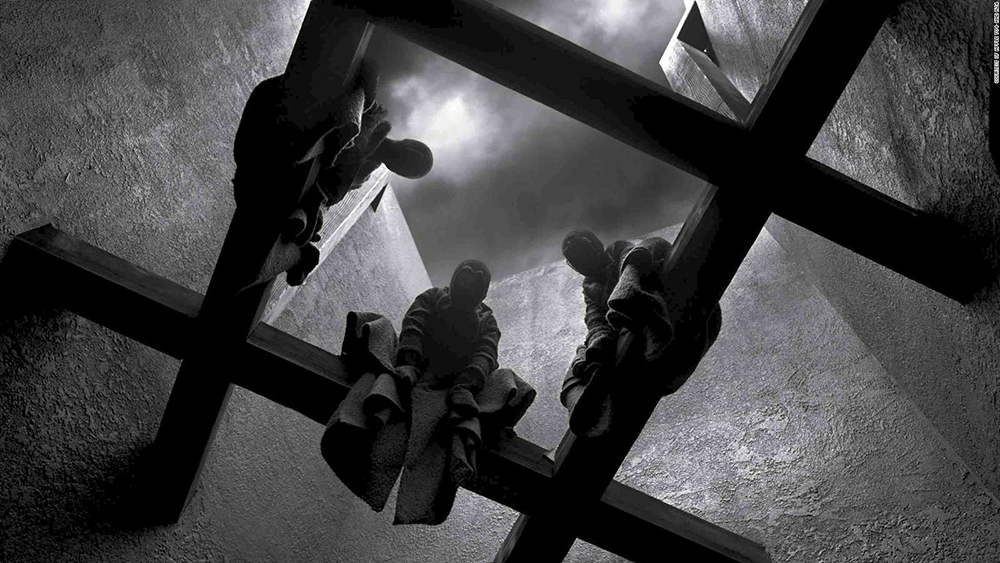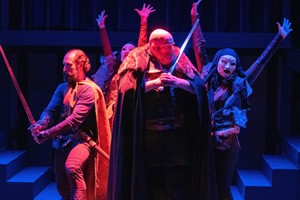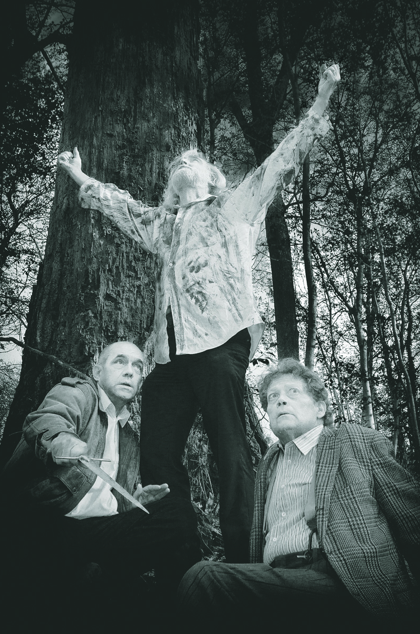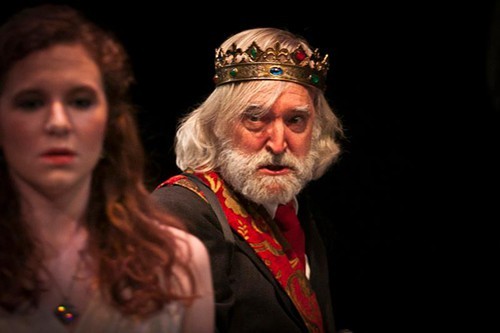If you’ve read any Shakespeare, it was probably either Romeo and Juliet or Macbeth. There are good reasons for that. First of all, they’re short for Shakespeare. Second, they’re both crowd-pleasers. Romeo and Juliet’s tale of doomed young love is relatable. Everyone’s had that first romance that feels like everything in the world depends on it. Shakespeare just took it to extremes.
As for Macbeth, it’s got bad love, greed, and murder — all the juicy ingredients of a good film noir. Plus, there’s the added supernatural element of the three witches, which gives what is at heart a tale of sordid political intrigue a Halloween-y vibe.
Joel Coen knows his way around a good film noir. Along with his brother Ethan, he’s produced some of the best neo-noir in Miller’s Crossing, Fargo, and The Man Who Wasn’t There. Since Coen’s wife happens to be three-time Academy Award winner Frances McDormand and Lady Macbeth is one of the juiciest female parts in all of English literature, staging Macbeth is a natural choice. And when I say “staging,” I mean it literally. The Tragedy of Macbeth is theatrical to a fault. There are no sweeping battle scenes like Kenneth Branagh’s Henry V. When Malcolm’s camouflaged army emerges from Birnam Wood to depose the tyrant our antihero has become, there are only a couple dozen of them. But it’s perfect for Macbeth, which was never intended to be historically accurate anyway. The real king Macbeth ruled Scotland peacefully for 17 years and was, by contemporary accounts, well-liked.

Shakespeare’s description of the “weird sisters” as grave-robbing crones gave us the modern use of the word “weird” as something strange and perhaps icky. But “wyrd” was an Anglo-Saxon word for “fate,” which was already archaic by the time the Bard used it to describe the witches who tell Macbeth some select details about his own destiny. At its heart, Macbeth is a psychological horror story about being destroyed by our own fears of the future.
To explore the wellspring of film noir, Coen goes back to the cinema that provided visual inspiration for films like Out of the Past and Double Indemnity, the silent-era German Expressionism of The Cabinet of Dr. Caligari and Nosferatu. Macbeth’s castle at Inverness is made up of shadows and suggestion, and the thane meets his witches on a bare stage, shrouded in fog.
The characters, on the other hand, are solid and real. With a Macbeth that is as technically meticulous as he is powerful, Denzel Washington once again makes the argument that he is our greatest living actor. He greets King Duncan (Brendan Gleeson) warmly, then kills him cold-bloodedly, and sits on his usurped throne with a lanky arrogance. McDormand’s Lady Macbeth is the opposite of the gritty realism she won the Oscar for in Nomadland. She plots King Duncan’s murder even as her husband’s letter informing her of the witch’s prophecy catches fire in her hands. When she proposes regicide with the phrase “unsex me here,” Washington seems genuinely unsettled by her ruthlessness. Together, they are not the young couple whose ambitions for playing the game of thrones blinds them to the moral cost, but rather two royals with a long history of scheming for the crown who finally see their chance and take it. There’s not a sour note in the supporting cast, with standout performances by Gleeson, a fiery Corey Hawkins as Macduff, and veteran actor Kathryn Hunter (who was the first woman to ever play King Lear on the English stage) as the three witches.
One aspect of the play Coen zeros in on is, once the foul deeds are done, how empty the prize of the throne turns out to be for the Macbeths. Their celebratory banquets reek of forced merriment, and their subjects obey them grudgingly. Lady Macbeth dies unmourned, even by her husband, and when it comes time to fight for the crown, no one rallies to Macbeth’s side. By the time the usurper king is punished by Macduff’s sword, Macbeth’s fight for power at all costs has already swallowed him whole. Coen has taken Shakespeare’s lesson about the ultimate futility of evil and crafted a starkly beautiful film.
The Tragedy of Macbeth is now streaming on Apple TV+.


 Tennessee Shakespeare Company
Tennessee Shakespeare Company  Jasa | Dreamstime.com
Jasa | Dreamstime.com 
